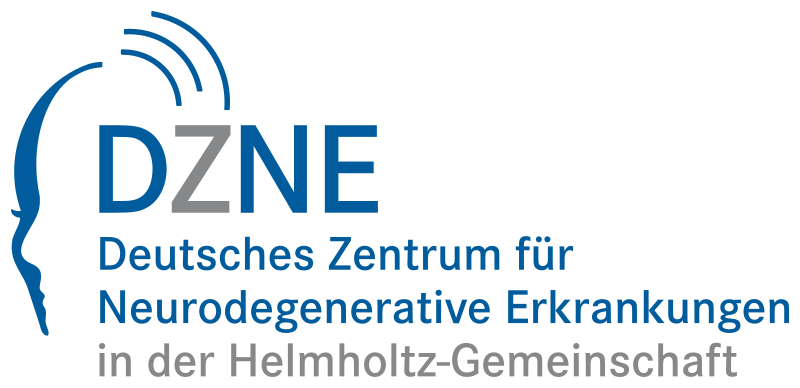Research Networks


Our group spezializes in rare diseases. A disease is called rare, when it affects no more than 5 of 100,000 people. However, in the grand-scheme of things, rare diseases are not quite so rare: by estimate, about 6-8% of citizens of the European Union are affected by at least one of the 6,000 known rare diseases.
Rare diseases are an enormous challenge for modern medicine as doctors and scientists specializing in rare diseases are required to become experts in the rare, unique, unusual instead of a specific field
 This project, sponsored by the European Union, enables us to closely collaborate with the group of Dr. Stephan Zuechner at the Hussman Institute of Human Genomics, University of Miami, Florida. Together we utilize the most modern technologies in genetics, such as Whole Exome Sequencing or Whole Genome Sequencing, in order to uncover the molecular roots of hereditary axonopathies. By identifying novel axonopathy genes we hope to better understand the biological networks involved in maintenance of long axons that are primarily affected in Hereditary Spastic Paraplegias and Hereditary Neuropathies. We ultimately want to create new therapeutic concepts for these rare diseases.
This project, sponsored by the European Union, enables us to closely collaborate with the group of Dr. Stephan Zuechner at the Hussman Institute of Human Genomics, University of Miami, Florida. Together we utilize the most modern technologies in genetics, such as Whole Exome Sequencing or Whole Genome Sequencing, in order to uncover the molecular roots of hereditary axonopathies. By identifying novel axonopathy genes we hope to better understand the biological networks involved in maintenance of long axons that are primarily affected in Hereditary Spastic Paraplegias and Hereditary Neuropathies. We ultimately want to create new therapeutic concepts for these rare diseases.
 The NeurOmics – Netwerk (Integrated European - omics reseach project for diagnosis and therapy in rare neuromuscular and neurodegenerative diseases) is a collaboration of over 20 academic and industrial partners. Together we want to improve the diagnosis and therapy of 10 common neurodegenerative diseases. We do this by systematically identifying people affected by these diseases, development of biomarkers for clinical use, pathophysiological studies to improve our understanding of disease mechanisms, research in modifying factors, and development of targeted therapies. The NeurOmics Network ist sponsored by the FP7 project of the European Union and is coordinated by the University of Tübingen (Prof. Olaf Riess, Institut für Medizinische Genetik und Angewandte Genomik).
The NeurOmics – Netwerk (Integrated European - omics reseach project for diagnosis and therapy in rare neuromuscular and neurodegenerative diseases) is a collaboration of over 20 academic and industrial partners. Together we want to improve the diagnosis and therapy of 10 common neurodegenerative diseases. We do this by systematically identifying people affected by these diseases, development of biomarkers for clinical use, pathophysiological studies to improve our understanding of disease mechanisms, research in modifying factors, and development of targeted therapies. The NeurOmics Network ist sponsored by the FP7 project of the European Union and is coordinated by the University of Tübingen (Prof. Olaf Riess, Institut für Medizinische Genetik und Angewandte Genomik).
 The CReATe Netzwerk is sponsored by the American National Institute of Health (NIH) as part of a network for rare diseases (RDCRC). The goal of the CReATe network is to improve the therapeutical options for people affected by motor neuron diseases, partly through research of the relationship between clinical manifestation and the underlying change in the genome and through discovery and development of biomarkers for these diseases.
The CReATe Netzwerk is sponsored by the American National Institute of Health (NIH) as part of a network for rare diseases (RDCRC). The goal of the CReATe network is to improve the therapeutical options for people affected by motor neuron diseases, partly through research of the relationship between clinical manifestation and the underlying change in the genome and through discovery and development of biomarkers for these diseases.
 The Intersite project for Hereditary Spastic Parapalegia (HSP), funded by the Deutschen Zentrums für Neurodegenerative Erkrankungen (DZNE) is a network of specialized outpatient clinics at different DZNE-locations throughout Germany.
The Intersite project for Hereditary Spastic Parapalegia (HSP), funded by the Deutschen Zentrums für Neurodegenerative Erkrankungen (DZNE) is a network of specialized outpatient clinics at different DZNE-locations throughout Germany.
Together we want to gain more of an insight into the clinical expression and disease course of HSP, build a registry of HSP patients for clinical studies, and improve the care for people affected by HSP in Germany. Our work is supported by the German Center for Rare Diseases and the HSP Selbsthilfegruppe Deutschland e.V., a patient advocacy group.
We are doing this projcect in close collaboration with the group of Prof. Ludger Schöls.
Prof. Ingemar Björkhem, Karolinska Institut, Huddinge, Schweden
Collaborations: Disorder of the Cholesterol metabolism and possible options for therapy of Spastic Paraplegia SPG5
Prof. Peter de Jonghe, VIB Department of Molecular Genetics, University of Antwerp, Antwerp, Belgium
Collaborations: Genetics of hereditary axonopathies and ataxias.
Prof. Olaf Riess & Peter Bauer, Institut for Medical Genetics and Applied Genomics, University of Tuebingen, Tübingen, Germany
Collaborations: Genetics of hereditary axonopathies
Prof. Aarnoud van der Spoel, Department of Biochemistry & Molecular Biology, Dalhousie University, Halifax, Nova Scotia, Canada
Collaborations: Disorders of metabolism in complex Lipids throughout the emergence of Hereditary Spastic Paraplegia
PD Dr. Günther Woehlke, Division for Molekular and Cellular Biophysics (E229, Technical University of Munich, Munich, Germany
Collaorations: Motor proteins in the pathogenesis of Hereditary Spastic Paraplegia
 The non-profit Tom Wahlig Foundation supports research in Hereditary Spastic Paraplegia. Besides many other projects, the Tom Wahlig Foundation hosts the annual Tom Wahlig Symposium, which is visited by many of the best HSP-researches around the world.
The non-profit Tom Wahlig Foundation supports research in Hereditary Spastic Paraplegia. Besides many other projects, the Tom Wahlig Foundation hosts the annual Tom Wahlig Symposium, which is visited by many of the best HSP-researches around the world.
 The American Spastic Paraplegia Foundations sponsors Research Projects in the field of Primary Lateral Sclerosis and Hereditary Spastic Paraplegia
The American Spastic Paraplegia Foundations sponsors Research Projects in the field of Primary Lateral Sclerosis and Hereditary Spastic Paraplegia
Interessengemeingschaft Ge(h)n mit HSP
 The Interessensgemeinschaft Ge(h)n mit HSP is a community of people and family members living with HSP to exchange informations about Hereditary Spastic Paraplegia.
The Interessensgemeinschaft Ge(h)n mit HSP is a community of people and family members living with HSP to exchange informations about Hereditary Spastic Paraplegia.
Förderverein für HSP-Forschung
 The Friends's association "Förderverein für HSP-Forschung" was founded by the "Interessengemeinschaft Ge(h)n mit HSP", in order to stimulate specific research in the field of Hereditary Spastic Paraplegia.
The Friends's association "Förderverein für HSP-Forschung" was founded by the "Interessengemeinschaft Ge(h)n mit HSP", in order to stimulate specific research in the field of Hereditary Spastic Paraplegia.
HSP-Advocacy-Group Germany e.V.
 A self-help group for people living with HSP and their families.
A self-help group for people living with HSP and their families.

Hereditary Spastic Paraplegias (HSP) are a group of rare, clinically variable, neurodegenerative disorders that are characterized by progressiv lower limb spasticity and weakness due to degeneration of the corticospinal tract motor neurons. Although HSPs are rare, they are not uniform disease but can be divided into at least 78 genetically distinct sub-groups. Furthermore, different metabolic disorders, inflammatory disease of the spinal cord, or tumours can mimic HSP. These alternative causes have to be carefully ruled out, as they often require different therapies than HSP.
ereditären Spastischen Spinalparalysen (HSP) sind eine Gruppe erblicher degenerativer Erkrankungen des Rückenmarks, die zu einer schleichend progredienten Gangstörung aufgrund von Spastik und Schwäche der Beinmuskulatur führen. Trotz ihrer Seltenheit ist die HSP keine einheitliche Erkrankung sondern teilt sich in mindestens 58 genetisch definierte Subtypen auf. Darüber hinaus führen verschiedene Stoffwechselstörungen, Entzündungen des Rückenmarks oder Tumoren zu dem Bild einer Spastischen Spinalparalyse. Die Aufdeckung solcher Ursachen ist wichtig, da sie anders behandelt werden müssen.
You can find consulting hours, contacts and further information on the webpage of the specialized outpatient clinic for Spastic Paraplegia of the University of Tuebingen (Spezialambulanz für Spastische Spinalparalyse)